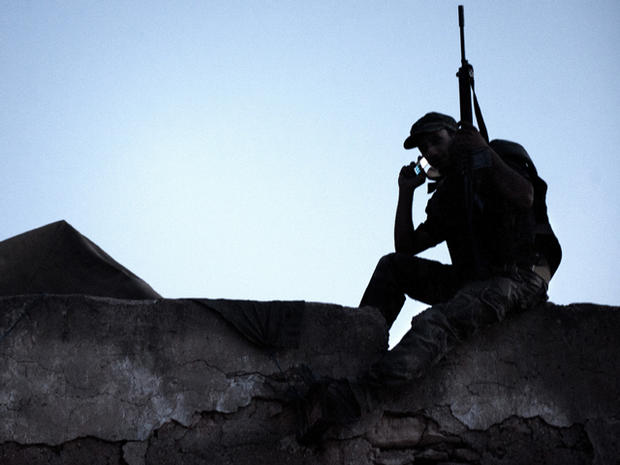Qaddafi spied on Libyans with international help
During the beginning of the Libyan rebels' uprising last winter, officials from a unit of Chicago-based Boeing Co. reportedly met in Barcelona, Spain, with a Libyan telecommunications official about installing an Internet-monitoring system.
As The Wall Street Journal reported Tuesday, the meeting was just one example of how much Muammar Qaddafi's regime wanted to monitor the electronic communications of its citizens as the rising tide of unrest spread in the Middle East and North Africa.
Special Section: Anger in the Arab World
Group: Qaddafi troops used child human shields
Qaddafi's lifestyle of the rich and infamous
An unnamed source "familiar" with the Barcelona meeting between the Libyan official and the Boeing unit, Narus, told the Journal that the Narus officials rejected the Libyan official's offer. A Narus spokeswoman also told the Journal that the company doesn't comment on "potential business ventures."
However other international companies did do business with the Qaddafi regime, the Journal reports, citing unnamed sources and materials discovered at a center in the capital city of Tripoli where the regime's spies monitored Libyans' communications.
"Help keep our classified business secret," reads a sign in English that the Journal found in the center displaying the logo of Amesys, a unit of the French company Bull SA. "Don't discuss classified information out of the HQ."
Unnamed sources "familiar" with the regime's business dealings told the Journal that Amesys and Chinese company ZTE Corp. provided monitoring equipment to Qaddafi's security service. The Journal reached an official at Bull, who provided no comment. Neither did a ZTE spokeswoman.
Amesys' website promotes one product with having the capabilities to "record, store, analyze and display in real time" information transmitted via email, voice and text chats and web browsing. The Journal quotes in its article from several emails and chats it found logged at the surveillance center.
According to the Journal, only 100,000 of the country's 6.6 million population have Internet subscriptions. At another center across town from where the Journal found the intercepted email and chat logs, an unnamed source "familiar" with the regime's phone-tapping operations said between 30 million and 40 million minutes of phone conversations were stored.

